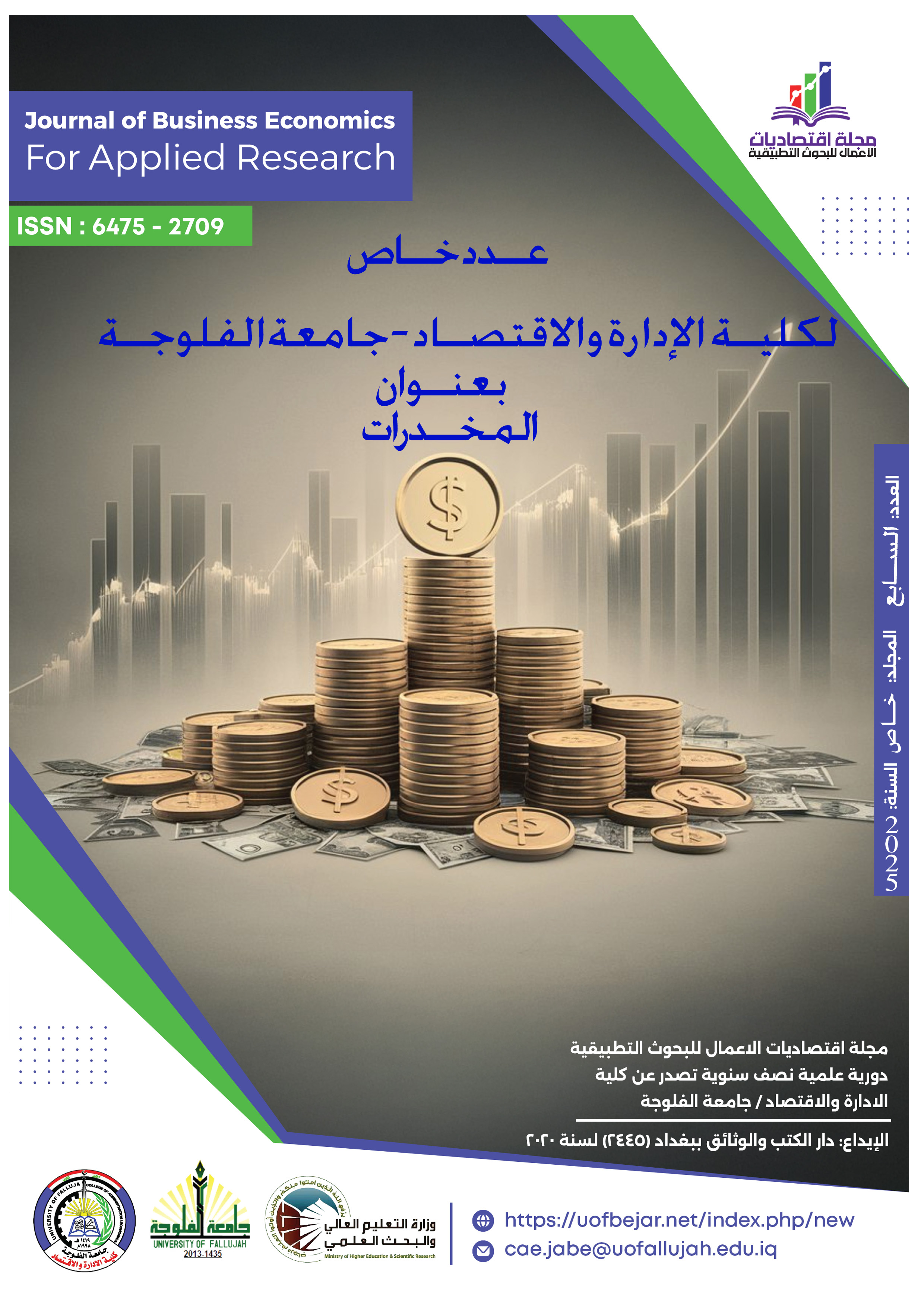The Role of Social Marketing Campaigns in Reducing Impulsive Buying Associated with Drugs: A Study of the Opinions of a Sample of Community Police Members and Officers in Anbar Province
Abstract
The research aims to examine the impact of social marketing with its dimensions (social product, official and political support, positive media support, and social distribution) on impulsive buying. It also explores how social marketing can influence individuals' motivations towards drug consumption and whether this type of marketing can effectively change their behavior by testing the research hypotheses. The study adopted a descriptive-analytical approach and tested a sample of 40 questionnaires collected from members and officers of the Community Police in Al-Anbar Province. The sample was selected using a comprehensive survey method, and the questionnaire form was employed as the main tool for data and information collection. The data were analyzed, and the hypotheses tested using the SPSS V.26 program. The research concluded with several findings, the most important of which is that there is a significant impact of the independent variable (social marketing) and its dimensions on impulsive buying. This indicates that social marketing can influence demand and redirect it towards more beneficial and sustainable products. Based on the findings, the research presented a set of recommendations, the most notable being the necessity of raising consumer awareness about the risks of excessive impulsive buying of harmful products. This can be achieved by using marketing advertising content to highlight the financial and psychological consequences that individuals may face due to excessive impulsivity in purchasing such products.



